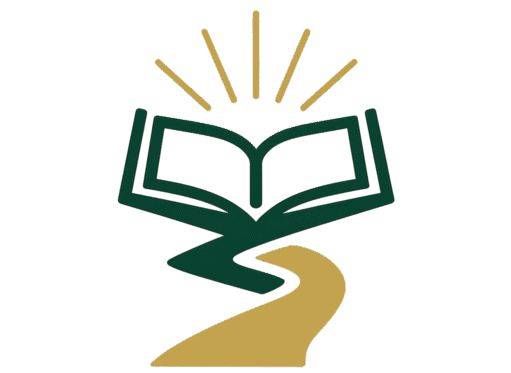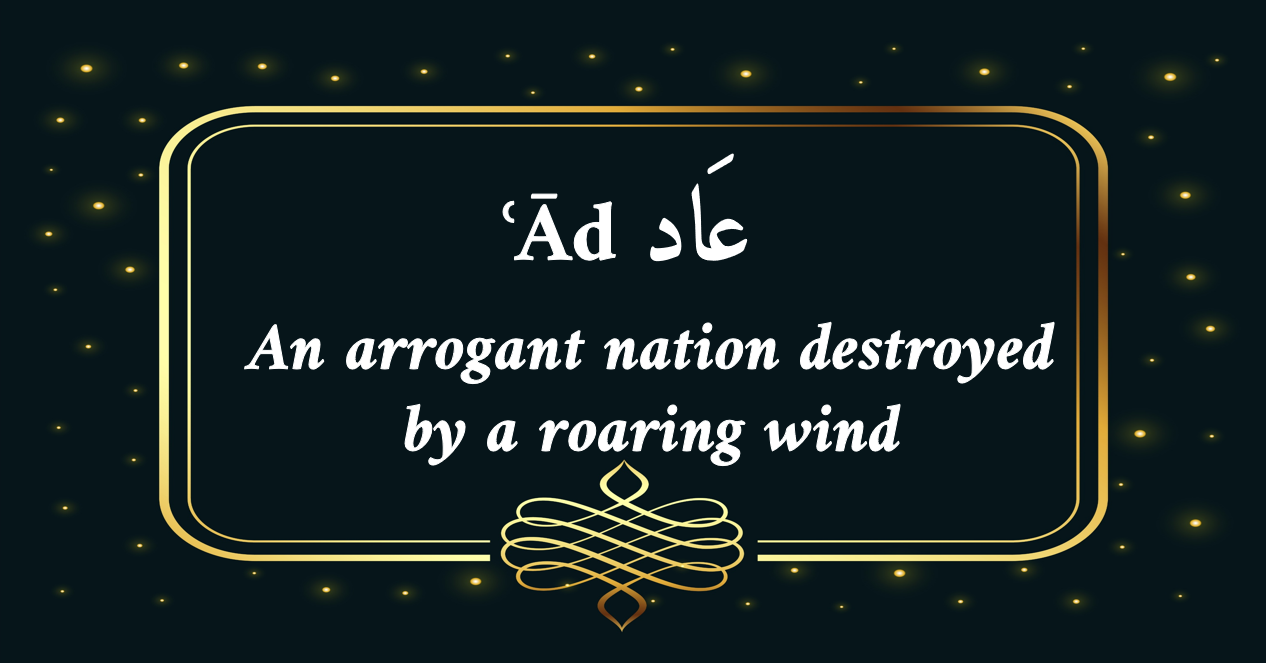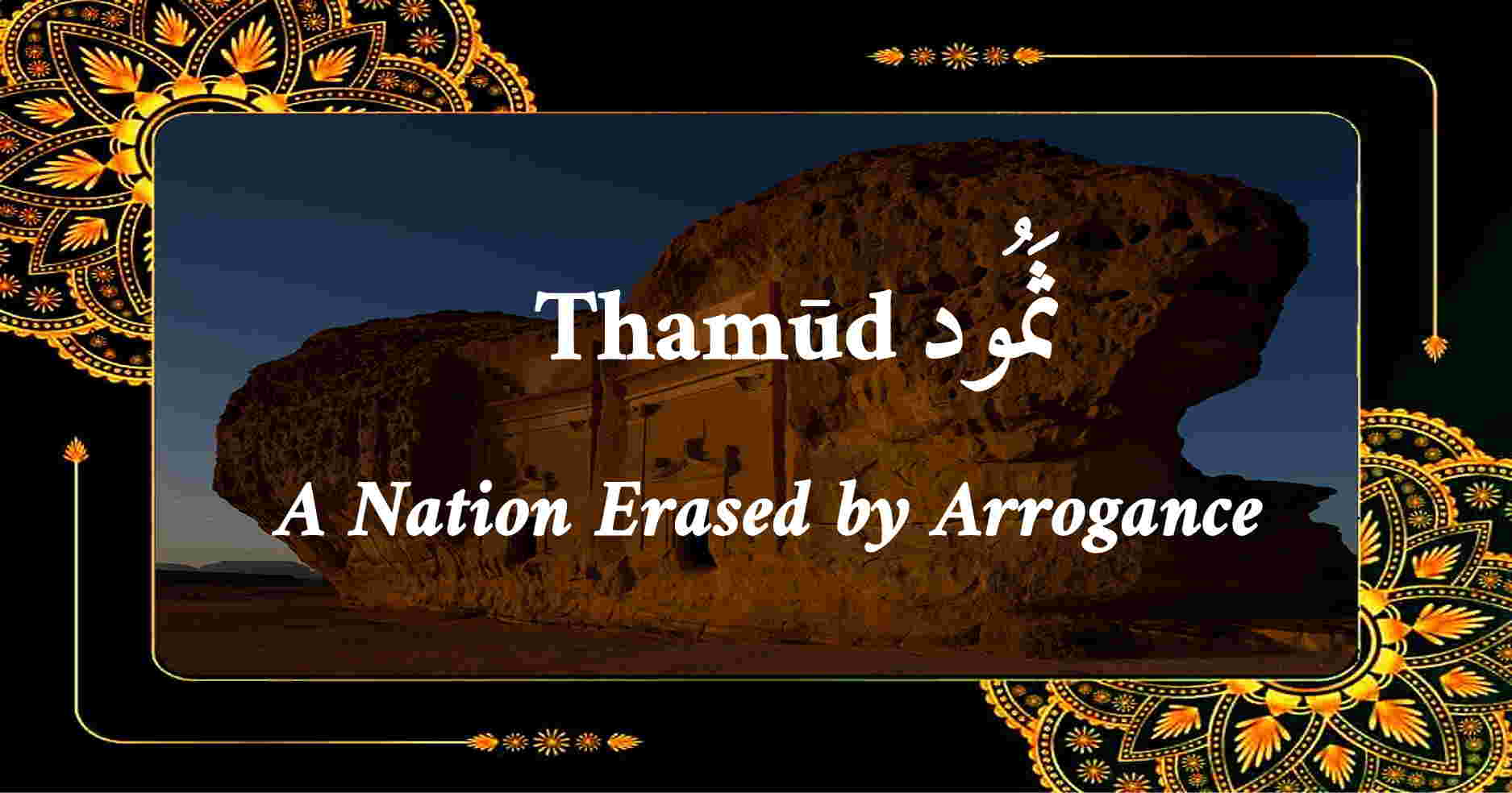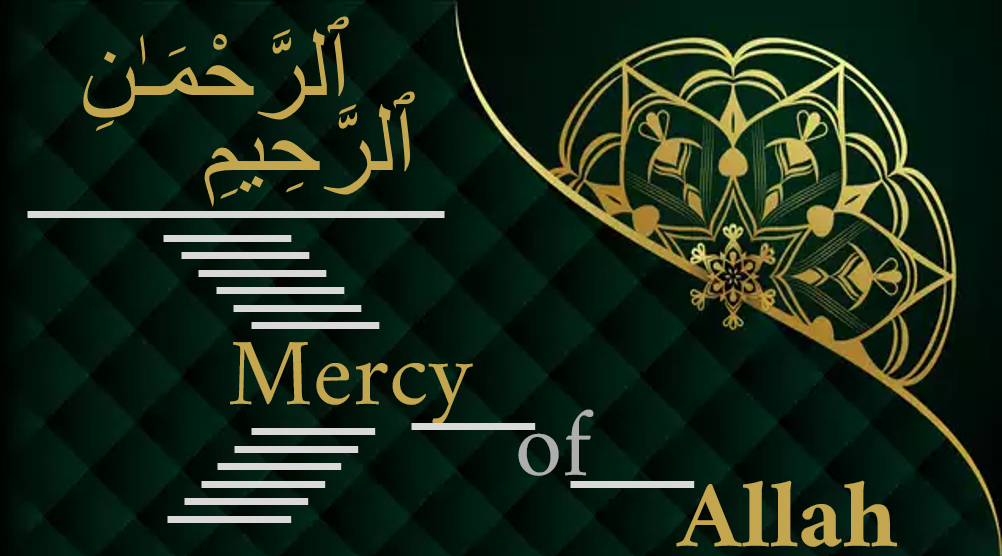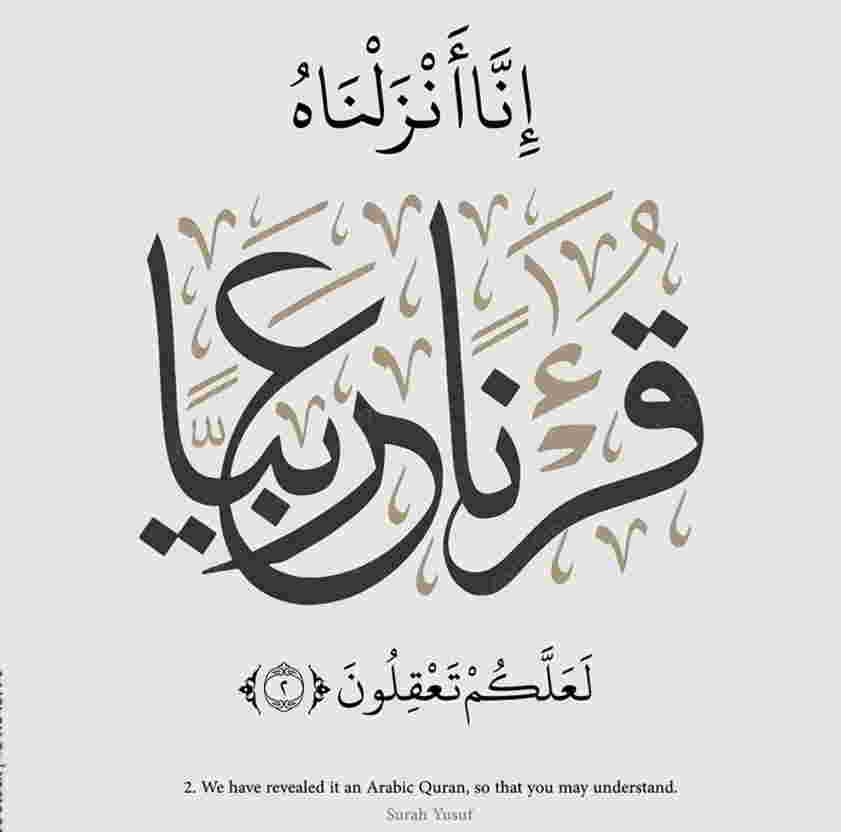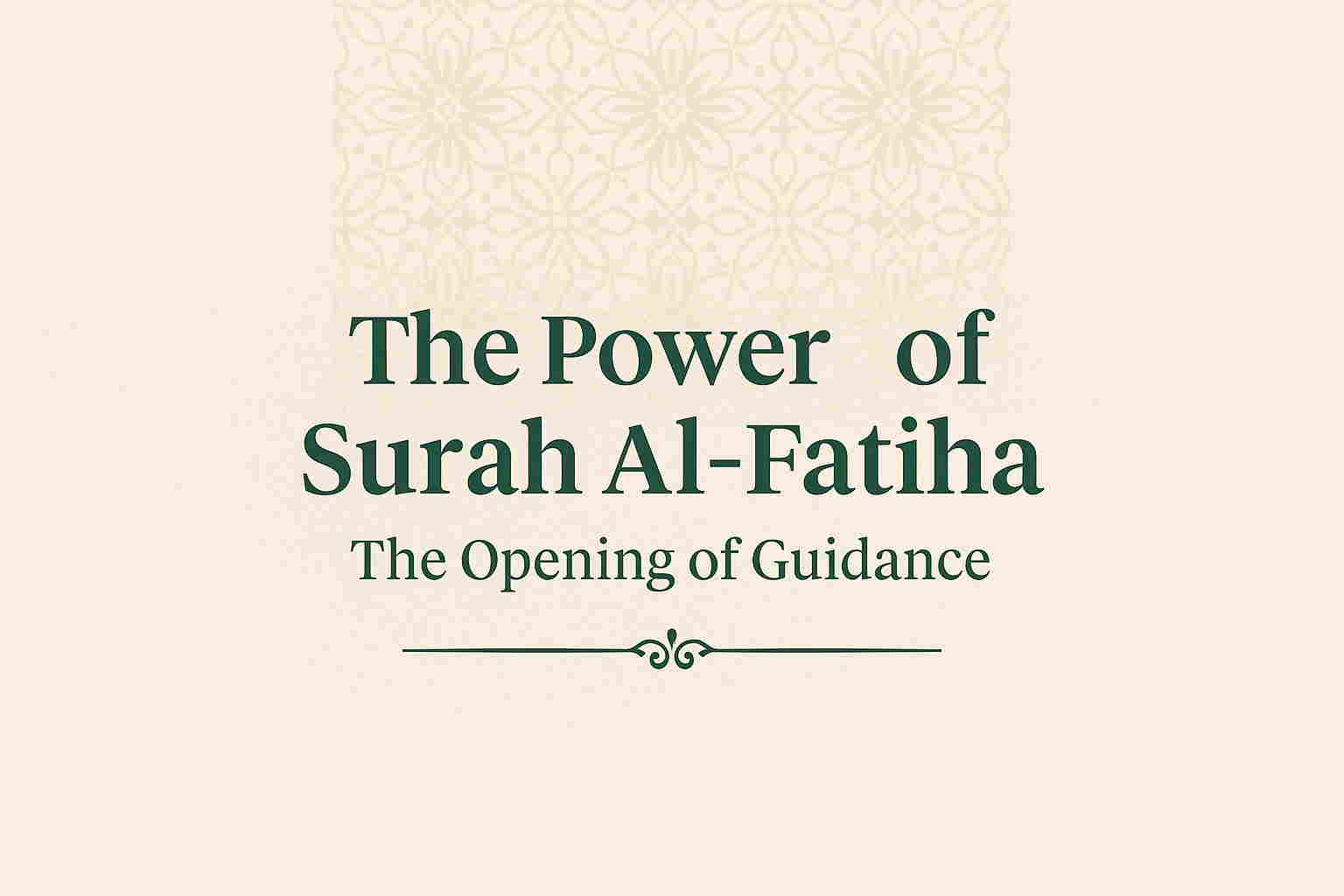مَن هُم عاد؟
Who were ʿĀd?
The arrogant nation destroyed by a roaring wind
ʿĀd (عاد) were an ancient Arab people known for their physical strength, massive constructions, and pride. Allah blessed them with power and lands, yet they turned to arrogance, oppression, and idol worship. He sent to them the Prophet Hūd (هُودٌ) calling them back to worship Allah alone, but most of them rejected his message. Their story is repeated in several surahs as a warning to anyone who feels secure because of worldly power.
ʿĀd in Surah Al-Fajr
In Surah Al-Fajr, Allah mentions ʿĀd as one of the great nations that were destroyed after transgressing and spreading corruption on earth:
أَلَمْ تَرَ كَيْفَ فَعَلَ رَبُّكَ بِعَادٍ (٦)
إِرَمَ ذَاتِ الْعِمَادِ (٧)
الَّتِي لَمْ يُخْلَقْ مِثْلُهَا فِي الْبِلَادِ (٨)
“Have you not seen how your Lord dealt with ʿĀd –
[the people of] Iram, the possessors of lofty pillars,
the like of whom had never been created in the land?” (89:6–8)
These verses show how powerful and unique ʿĀd were in their time, yet their strength did not protect them when they disobeyed Allah and rejected His messenger.
Who were ʿĀd?
According to the Qur’an and classical scholars, ʿĀd were:
- An ancient Arab tribe living after the time of Prophet Nūḥ (Noah) عليه السلام.
- Settled in the region of al-Aḥqāf (الأحقاف) — sand dunes and valleys between Yemen and Oman, according to many historians of tafsīr.
- Physically strong and advanced — they built tall structures and fortresses, and felt secure in their power.
Allah gave them strength, wealth, and long lives, but instead of being grateful, they became proud and oppressive, turning away from tawḥīd (worship of Allah alone) and following their desires and idols.
Where ʿĀd Are Mentioned in the Qur’an
The story of ʿĀd is spread across several surahs. Each passage highlights a different aspect: their arrogance, the message of Hūd, the punishment that struck them, and the lessons for later generations.
| Surah | Ayah Range | Focus |
|---|---|---|
| Al-Aʿrāf (7) | 65–72 | Call of Hūd, rejection of the message, brief description of their destruction |
| Hūd (11) | 50–60 | Detailed dialogue between Hūd and his people, their arguments, and the end of ʿĀd |
| Ash-Shuʿarāʾ (26) | 123–140 | Repeated warnings, their mockery, and the punishment |
| Fuṣṣilat (41) | 15–16 | Their arrogance and the wind that humiliated them |
| Al-Qamar (54) | 18–21 | “How severe were My punishment and warnings!” |
| Al-Ḥāqqah (69) | 4–8 | Their end by a violent, screaming wind |
| Al-Fajr (89) | 6–8 | Mention of ʿĀd and Iram as a unique, powerful nation that was destroyed |
Prophet Hūd and His Message
Allah sent to ʿĀd the Prophet Hūd (هُودٌ), one of the Arab prophets. He came from among them, spoke their language, and reminded them of Allah’s blessings:
يَا قَوْمِ اعْبُدُوا اللَّهَ مَا لَكُم مِّنْ إِلَٰهٍ غَيْرُهُ (الأعراف ٧:٦٥)
“O my people, worship Allah; you have no deity other than Him.” (7:65)
He called them to:
- Abandon idols and false gods
- Stop arrogance and oppression in the land
- Be grateful for strength, livestock, gardens, and children
- Seek Allah’s forgiveness and turn back to Him so He increases their blessings
But most of them responded with pride and mockery. They said things like: “Who is stronger than us?” and denied that a punishment could really strike them.
Their Arrogance and Their Punishment
ʿĀd became famous in the Qur’an for their arrogance. They felt secure in their constructions and strength, and they viewed Hūd and his followers as weak. When he warned them of Allah’s punishment, they challenged him instead of fearing Allah.
In the end, Allah sent against them a violent, screaming wind (رِيحًا صَرْصَرًا عَاتِيَةً) that lasted for several days, uprooting them and destroying their buildings. The Qur’an describes that nothing remained except their bodies lying on the ground, as if they were hollow trunks of palm trees.
وَأَمَّا عَادٌ فَأُهْلِكُوا بِرِيحٍ صَرْصَرٍ عَاتِيَةٍ (الحاقة ٦)
“As for ʿĀd, they were destroyed by a screaming, violent wind.” (69:6)
That wind, which they could neither see nor stop, showed them that real power belongs to Allah alone.
Important Vocabulary in the Story of ʿĀd
| Word / Phrase | Literal Meaning | Contextual Meaning |
|---|---|---|
| إِرَمَ ذَاتِ الْعِمَادِ | Iram, possessor of pillars | The city/region of ʿĀd, known for tall pillars and strong buildings |
| رِيحٍ صَرْصَرٍ عَاتِيَةٍ | A screaming, furious wind | The destructive wind that uprooted and destroyed ʿĀd |
| الأحقاف | Sand dunes / curved hills | Region of sand dunes where ʿĀd lived |
| طَغْيَان / اسْتِكْبَار | Transgression / arrogance | Their pride and rebellion against Allah and His messenger |
Lessons from the Story of ʿĀd
- Power without faith is a test, not a guarantee. Strength, buildings, and numbers cannot protect a nation from Allah’s decree.
- Arrogance destroys individuals and nations. Their problem was not a lack of signs, but pride and refusal to submit.
- Prophets come from their own people. Hūd was one of them, spoke their language, cared for them — yet they still rejected him.
- Allah’s punishment can come from where people feel strongest. They were proud of their environment and power; the wind from that same sky destroyed them.
- The stories of destroyed nations are warnings, not just history. They are meant to soften hearts, not to entertain.
The Qur’an reminds us that the fate of ʿĀd is a sign for anyone who listens and reflects, especially when reading passages like Surah Al-Fajr and Surah Hūd.
